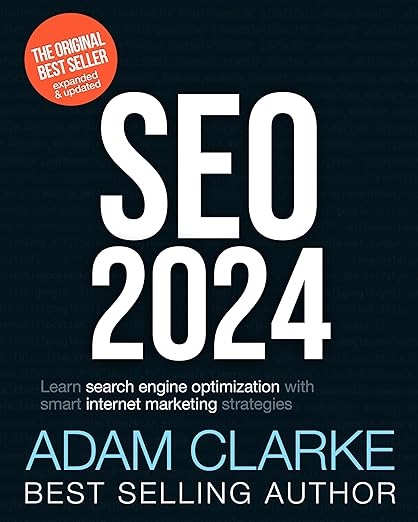Estimated reading time: 4 minutes
In the world of digital marketing and search engine optimization (SEO), the term “keywords” is often mentioned, but not everyone understands what they truly are. So, what are keywords? Simply put, key words are the words and phrases that people type into search engines when looking for specific information, products, or services. They serve as the connection between what users are searching for and the content that you provide on your website.
Having a basic understanding of key words is crucial for any website owner. Without proper keyword usage, your content may never reach its intended audience. This article will guide you through the importance of key words and how to develop a successful keyword strategy for your website.
Why You Need Keywords
Keywords are essential because they help search engines understand what your website is about. When a search engine crawls your site, it analyzes the content and identifies key words to determine how relevant your page is to specific searches.
For example, if your website sells custom t-shirts, using specific key words like ‘custom graphic t-shirts’ can help you reach users who are specifically interested in this type of product. Properly researched and strategically placed key words can significantly increase your site’s visibility, driving more organic traffic and connecting you with your target audience.

Benefits of Having Keywords
Understanding and using the right key words can offer several benefits:
- Increased Organic Traffic:
By targeting the right keywords, you can attract users who are genuinely interested in your content, leading to higher organic traffic. - Improved User Experience:
Keywords help in crafting content that is directly relevant to what users are searching for, improving overall user experience on your site. - Higher Conversion Rates:
When you use key words that align with the search intent of your audience, you’re more likely to convert visitors into customers, as your content meets their needs directly.
For instance, a well-targeted keyword strategy for websites can lead to a higher engagement rate, as users find exactly what they are looking for on your site.
Consequences of Not Having Keywords
Neglecting the importance of keywords can have significant drawbacks:
- Reduced Visibility:
Without relevant keywords, search engines might not understand the content of your website, leading to poor rankings in search results. - Missed Opportunities:
Failing to use effective key words means you could miss out on attracting your target audience, which could have otherwise converted into loyal customers.
For example, using vague or overly competitive key words can cause your content to be lost among countless other results, reducing its chances of being seen by potential visitors.
How to Obtain Keywords
Creating an effective keyword strategy involves thorough research and planning. Here’s a step-by-step guide on how to do it:
- Keyword Research:
Start by identifying what your audience is searching for. Tools like Google Keyword Planner, Ahrefs, and SEMrush can help you discover keywords with good search volume and low competition. - Analyze Search Intent:
Understanding the search intent behind keywords is crucial. Are users looking for information, making a purchase, or comparing products? This will help you select keywords that match their intent. - Use Short-Tail and Long-Tail Keywords:
Incorporate a mix of short-tail and long-tail key words into your content. Short-tail key words are general terms (e.g., “SEO tips”), while long-tail keywords are more specific phrases (e.g., “how to optimize SEO for small businesses”). Long-tail keywords, although having lower search volume, often have less competition and can drive more targeted traffic. - Alternative Keyword Sources:
Besides keyword tools, consider alternative suggestions like forums (e.g., Quora), social media (e.g., Reddit), and Google’s “suggest” feature to find niche keywords.
Using the right combination of key words is key to developing an effective keyword strategy for websites.
Conclusion
In conclusion, understanding what keywords are and implementing a strong keyword strategy for your website are essential steps toward achieving online success. Keywords are the building blocks of SEO, guiding search engines and users to your content. By choosing the right keywords and placing them strategically within your content, you can enhance your website’s visibility, attract the right audience, and ultimately achieve your business goals.
Remember, keyword strategy for websites is not just about stuffing words into your content. It’s about understanding your audience’s needs, analyzing search intent, and delivering valuable and Unique content that meets those needs. Start refining your keyword strategy today and watch your website thrive!














6 Comments
Hello I am so delighted I found your webpage, I
really found you by accident, while I was researching on Aol for something else,
Nonetheless I am here now and would just like to say thank you
for a marvelous post and a all round interesting blog (I also love the theme/design),
I don’t have time to look over it all at the minute but I have saved it and also added your RSS feeds, so when I have time I will
be back to read a lot more, Please do keep
up the excellent job.
Hello Shirleen,
Thank you so much for your kind words! 😊 I’m really happy to hear that you found my blog and enjoyed the content. It’s always great to know that readers find value in what I share. Feel free to explore the other posts when you have time, and I hope they provide useful insights for you as well.
If you have any questions or topics you’d like to see covered in the future, don’t hesitate to let me know! Looking forward to seeing you back here soon.
These are truly great ideas in concerning blogging. You have touched some
nice points here. Any way keep up wrinting.
Thank you for the encouragement! I’m glad you found the ideas helpful. I’ll definitely keep writing and sharing more insights!
Its like you learn my thoughts! You seem to know so much about this, such as you wrote the book
in it or something. I feel that you can do with some p.c.
to pressure the message house a bit, however other than that, that
is excellent blog. An excellent read. I’ll definitely be back.
Thank you so much for your kind words and thoughtful feedback! I’m glad you enjoyed the blog, and I appreciate your suggestion—I’ll definitely keep it in mind for future posts. Looking forward to seeing you back!